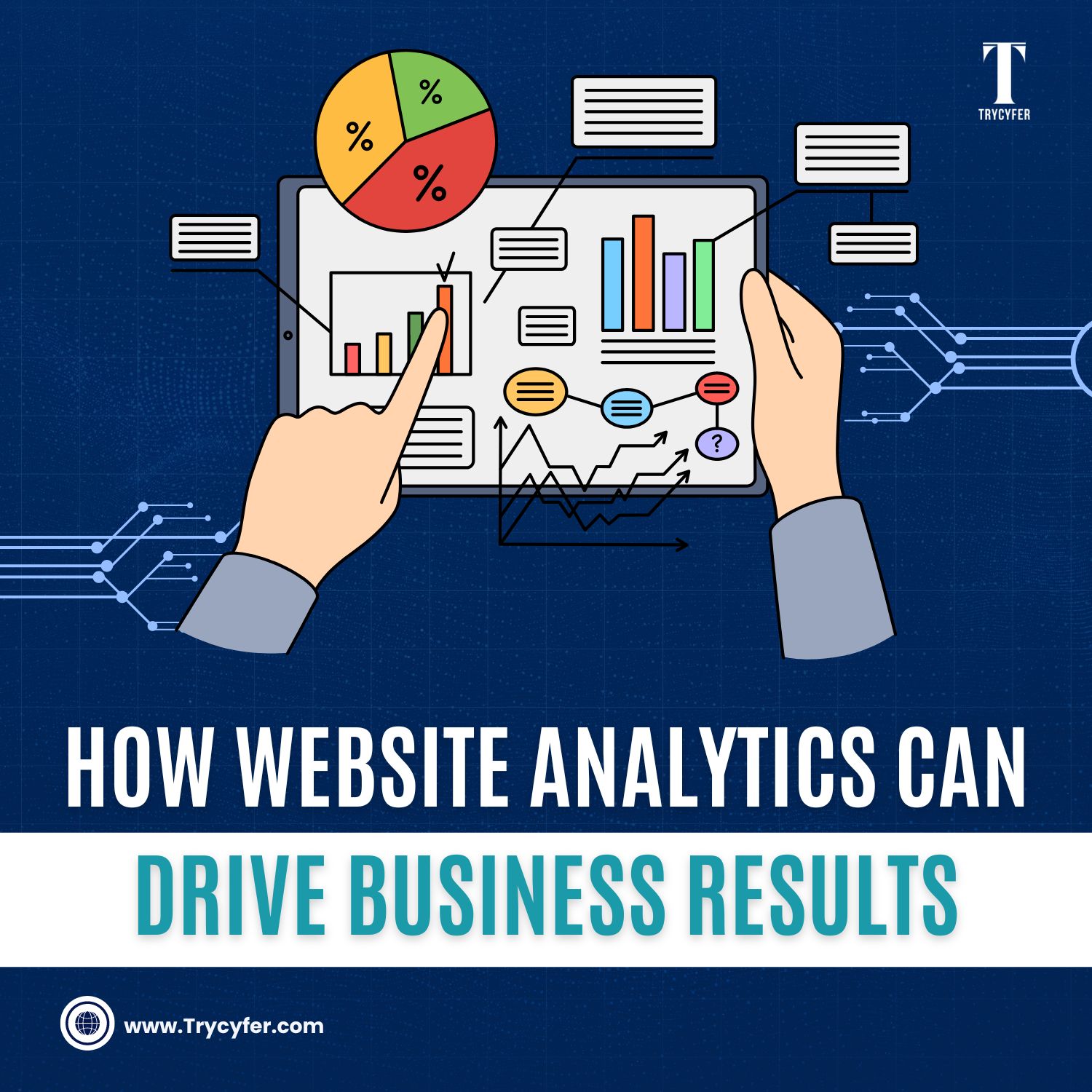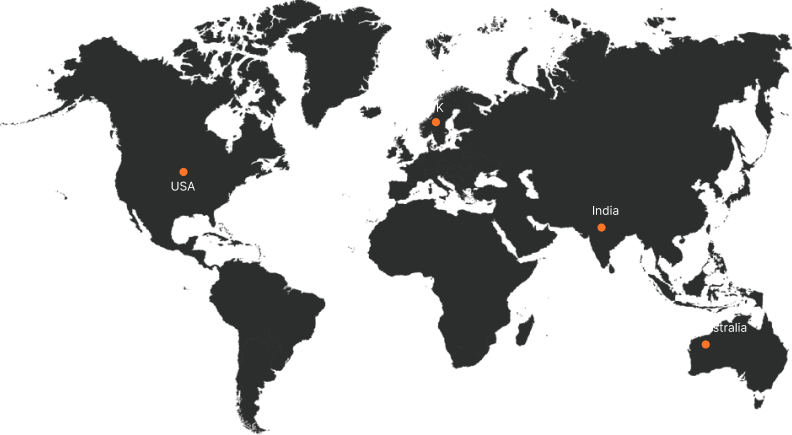How Website Analytics Can Drive Business Results

In today’s digital environment, data is the new currency. For businesses, using the power of data is no longer a luxury but a need for staying competitive. Analytics on websites has become a crucial tool for businesses of all sizes, allowing them to gain insights into customer behaviour, optimize their online presence, and ultimately drive growth. This blog will explore how businesses can benefit from using analytics on their websites, we will also discuss the various advantages, strategies, and tools that can help organizations make the most of their data.
Understanding Website Analytics
Website analytics involves collecting, measuring, analyzing, and reporting web data. By using analytics, businesses can track key performance indicators (KPIs) such as traffic sources, visitor behaviour, conversion rates, and more. These insights are crucial for making informed decisions about website design, content strategy, marketing campaigns, and customer engagement.
The Role of Analytics in Website Performance
When using analytics on your website, you can monitor several aspects of website performance, including page load times, user engagement, bounce rates, and conversion rates. These metrics help you understand how well your website is operating and identify areas for improvement. For instance, if your website has a high bounce rate, it could indicate that visitors are not finding what they’re looking for, prompting you to optimize content or design elements.
Benefits of Using Analytics on a Website
1. Improved Decision-Making
One of the most significant benefits of using analytics on a website is the ability to make data-driven decisions. By analysing user behaviour and website performance, businesses can identify trends, preferences, and areas of concern. This information can guide strategic decisions, from marketing and content creation to website design and user experience improvements.
For example, suppose analytics show that a particular page has a high exit rate. In that case, businesses can investigate the cause and take corrective action, such as improving content, enhancing navigation, and adding calls to action.
2. Enhanced User Experience
Analytics tools provide insights into user behaviour, like the pages they visit, the time they spend on each page and their navigation patterns. With this data, businesses can make data-driven decisions to optimize their website layout, content, and, most importantly, functionality.
An optimized user experience leads to increased engagement, higher conversion rates, and improved customer satisfaction. For instance, if analytics reveal that users frequently abandon their shopping carts, businesses can streamline the checkout process.
Related Blog: Which Tool Helps You Measure the Success of Your Website?
3. Targeted Marketing Campaigns
How can businesses benefit from using analytics on their website in terms of marketing? The answer lies in the capability to generate highly targeted campaigns. Website analytics provide detailed information about your audience, including demographics, interests, and behaviour. This data allows businesses to divide their audience and customize marketing messages to specific groups.
Targeted marketing campaigns are more effective because they connect with the considered audience, leading to better click-through rates, conversions, and return on investment (ROI). For example, if your analytics show that a particular audience segment is interested in a specific product, you can create targeted ads or email campaigns to promote and target that product to them.
4. Optimized Conversion Rates
Conversion rate optimization (CRO) is important to any online business strategy. How can businesses benefit from using analytics on their website to improve conversion rates? By analyzing user behaviour and identifying drop-off points in the conversion funnel, companies can make data-driven changes to their website.
For instance, if analytics show that users are abandoning the site at the checkout page, you can analyze the page for potential issues, such as a complicated form, lack of payment options, or slow loading times. Addressing this matter can significantly increase conversion rates, ultimately boosting revenue.
5. Cost Efficiency

Another benefit of using analytics on a website is cost efficiency. By learning which marketing channels and campaigns drive the most traffic and conversions, businesses can distribute their resources more effectively. This prevents wasted spending on underperforming channels and ensures that marketing budgets are used in the most impactful way.
For example, if analytics reveal that your paid search campaigns are generating a higher ROI than social media ads, you can allocate more of your budget to paid search. This not only optimizes your budget allocation but also enhances your overall marketing strategy, making it more effective and efficient.
6. Better Content Strategy
Content is king, but only if it is relevant and engaging to your audience. Website analytics can help businesses create a content schedule that resonates with their target audience. Companies can identify the best topics and formats by analyzing which pages and blog posts attract the most traffic and engagement.
These insights are not just numbers; they are actionable guides that steer businesses towards creating content that is more likely to be shared, generate leads, and drive conversions. For instance, if your analytics reveal that video content outperforms text-based content, you can pivot your content creation strategy to focus more on engaging video content.
7. Improved SEO Performance
Search engine optimization (SEO) is crucial for driving organic traffic to your website. How can businesses benefit from using analytics on their website in terms of SEO? Analytics tools can help companies monitor their SEO functioning by tracking metrics such as organic traffic, keyword rankings, and backlinks.
By examining this data, businesses can proactively identify opportunities for SEO improvement, such as optimizing content for specific keywords, enhancing site speed, or increasing the number of backlinks. This proactive use of analytics leads to higher search engine rankings, increased visibility, and more organic traffic.
8. Real-Time Monitoring
Website analytics tools provide real-time data, it is a valuable resource for businesses to track their website performance. This real-time data is useful for quickly identifying and addressing issues such as sudden traffic drops, bounce rate spikes, or technical problems.
Real-time monitoring also allows businesses to assess the immediate impact of marketing campaigns, website updates, or product launches, allowing for timely adjustments and optimizations.
9. Enhanced Customer Insights
One of the most valuable benefits of using analytics on a website is the ability to gain deep insights into customer behaviour. By analysing how customers interact with their websites, businesses can recognize patterns and trends that show preferences, pain points, and buying habits.
These insights can inform product development, customer service strategies, and personalized marketing efforts. For example, if your analytics show that customers frequently visit your FAQ page before making a purchase, you can enhance this page to provide even more helpful information, reducing barriers to conversion.
10. Competitive Advantage
In today’s competitive marketplace, businesses that effectively use website analytics have a significant advantage over those that don’t. By understanding and leveraging data, companies can make more informed decisions, optimize their operations and stay ahead of the competition.
For instance, if your competitors are not using analytics to optimize their websites, you can gain an edge by using data to improve your user experience, marketing campaigns, and conversion rates.
Conclusion
Website analytics is essential for businesses looking to optimize their online presence and drive growth. By understanding how businesses can benefit from using analytics on their website, organizations can make data-driven decisions, enhance the user experience, and achieve their strategic goals. From improved decision-making and targeted marketing to better SEO performance and customer insights, the advantages of using website analytics are clear.
To stay competitive in today’s digital landscape, businesses must use analytics and use the data available to make informed decisions. Whether you’re just starting with website analytics or looking to enhance your current efforts, following best practices and continuously optimizing your strategy will help you unlock your website’s full potential.











